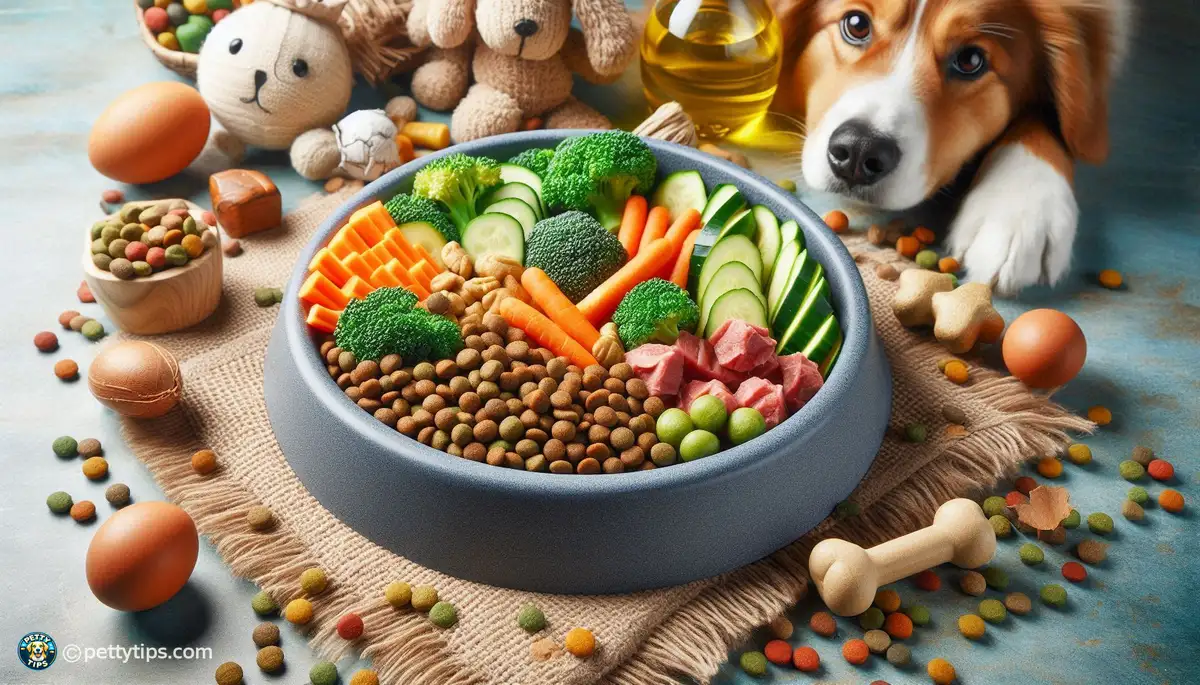Crafting a Balanced Diet Plan for Your Canine Companion

The Basics of Canine Nutrition
When it comes to ensuring the health and happiness of our furry friends, nutrition plays a pivotal role. Just like humans, dogs require a well-balanced diet to thrive. Understanding the fundamentals of canine nutrition is essential for crafting a diet plan that meets your pup's unique needs. Dogs are omnivores, meaning they can derive nutrients from both plant and animal sources. Their diet should consist of a combination of proteins, carbohydrates, fats, vitamins, and minerals to support their overall health.
Nutritional Requirements for Dogs
Every dog is different, and their nutritional requirements can vary based on factors such as age, breed, size, activity level, and health status. Puppies, for example, have different dietary needs than adult dogs, while senior dogs may require a diet tailored to support aging joints and metabolism. Larger breeds may need more calories and specific nutrients to support their growth and development, while smaller breeds may require smaller portions to prevent weight gain.
Building Blocks of a Balanced Diet
High-Quality Protein Sources
Protein is an essential macronutrient for dogs, serving as the building blocks for healthy muscles, tissues, and organs. When selecting protein sources for your canine companion, opt for high-quality, animal-based proteins such as chicken, turkey, beef, and fish. These proteins are rich in essential amino acids, which are necessary for your dog's overall health and well-being.
Healthy Carbohydrates
Carbohydrates are a vital energy source for dogs, providing the fuel they need to stay active and alert throughout the day. While dogs don't require carbohydrates in the same way humans do, incorporating healthy sources of carbohydrates into their diet can provide fiber, vitamins, and minerals. Opt for whole grains such as brown rice, oats, and barley, as well as fruits and vegetables like sweet potatoes, peas, and carrots to add variety and nutrients to your dog's meals.
Essential Nutrients for Optimal Health
Omega-3 Fatty Acids
omega-3 fatty acids are crucial for maintaining your dog's skin and coat health, as well as supporting their immune system and reducing inflammation. Incorporating sources of omega-3 fatty acids such as fish oil, salmon, and flaxseed into your dog's diet can help promote a shiny coat, reduce shedding, and alleviate dry, itchy skin.
Vitamins and Minerals
Vitamins and minerals play a vital role in your dog's overall health, supporting functions such as bone development, immune system function, and cellular repair. While commercial dog foods are often fortified with essential vitamins and minerals, it's essential to ensure your dog's diet includes a variety of nutrient-rich foods to meet their needs. Leafy greens, eggs, and organ meats are excellent sources of vitamins A, C, D, and E, as well as minerals like calcium, phosphorus, and zinc.
Tailoring the Diet to Your Dog's Needs
Special Dietary Considerations
Some dogs may have special dietary needs or health conditions that require a customized diet plan. For example, dogs with food allergies or sensitivities may benefit from a limited ingredient diet that eliminates common allergens such as wheat, soy, and dairy. Similarly, dogs with certain medical conditions such as diabetes or kidney disease may require a diet that's lower in carbohydrates or phosphorus to manage their condition effectively.
Consulting with Your Veterinarian
When it comes to crafting a balanced diet plan for your canine companion, consulting with your veterinarian is key. Your vet can provide valuable insights into your dog's specific nutritional needs based on their age, breed, health status, and lifestyle. They can also offer recommendations for commercial dog foods or supplements that align with your dog's dietary requirements and preferences.
Implementing the Diet Plan
Transitioning to a New Diet
When introducing a new diet plan to your dog, it's essential to do so gradually to prevent digestive upset. Start by mixing small amounts of the new food with their current food and gradually increase the proportion of the new food over the course of several days. Monitor your dog for any signs of gastrointestinal discomfort, such as vomiting, diarrhea, or decreased appetite, and adjust the transition process as needed.
Monitoring Your Dog's Health
Once you've implemented a balanced diet plan for your canine companion, it's essential to monitor their health and well-being regularly. Keep an eye on their weight, coat condition, energy level, and overall demeanor to ensure they're thriving on their new diet. If you notice any changes or concerns, don't hesitate to reach out to your veterinarian for guidance and support.
Conclusion
Crafting a balanced diet plan for your canine companion is a crucial aspect of responsible pet ownership. By understanding the basics of canine nutrition, incorporating high-quality ingredients, and tailoring the diet to your dog's individual needs, you can help support their overall health and well-being. Remember to consult with your veterinarian for personalized recommendations and guidance throughout the process. With a nutritious and well-balanced diet, your furry friend can enjoy a happy, healthy life by your side.
